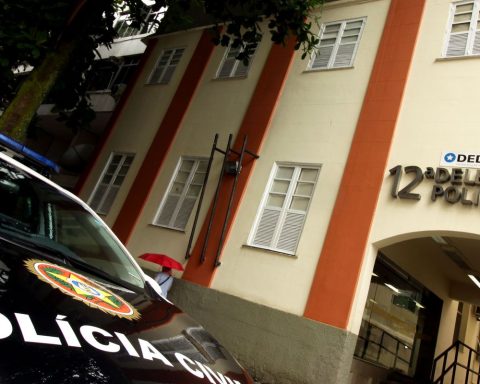The legislative process around the bill that proposes a tax reform continues its course in the Treasury commission of the Chamber of Deputies and Deputies. After yesterday, Monday, the initiative promoted by the Government was approved in general, with eight votes in favor and five against -all of them in opposition-, this Tuesday a group of parliamentarians headed by the president of the instance, Jaime Naranjo (PS ), will present a new indication, which seeks to compensate for the lower tax collection, in order to correct the criticism coming from specialists – tax lawyers, accountants and business associations – insofar as, as the reform is proposed, it would not reach its goal of collecting 4.1% of GDP.
Said indication refers to a Tax on Financial Transactions (ITF) – known as the Tobin tax or “Robin Hood” tax – that the State could apply to the sale, purchase, transfer or registration of a financial instrument, and which aims to collect about 2.9 billion dollars a year.
It is a “progressive” tax, attractive in economies with high rates of income or wealth inequality, and whose tax burden falls mainly on high-net-worth taxpayers, where -as it is a minority sector of the population- the impact distribution could contribute to social equity. It is worth mentioning that in Chile, according to the World Inequality Report By 2022, the richest 10% of the country owns 80.5% and the 1% with the greatest wealth concentrates 49.6% of the total wealth.
According to details from the Finance Commission of the Chamber of Deputies, the minister of the portfolio, Mario Marcel, was already aware of this proposal and positively valued its eventual inclusion in the legislative process of the tax reform project. Regarding the main advantages of this Tax on Financial Transactions, parliamentarians agree that, by focusing on high socioeconomic segments and large companies that trade in the markets, it taxes an economic activity of buying and selling financial instruments outside the real economy. In addition, the financial flow and its actions are taxed, not its results (profits or losses), nor is equity.
In this regard, deputy Jaime Naranjo (PS) pointed out that “we are convinced that it would be a tremendous achievement to approve this indication, to precisely compensate for the resources that are not going to be collected due to these indications that the Executive agreed with the right and with the entrepreneurs, who now appeared rejecting the project in general terms. In such a way that we are fully aware that it is an interesting proposal and that it is easy to collect and, therefore, we have discussed it with the authorities of the Ministry of Finance, both with the Minister Mario Marcel and with the Undersecretary Claudia Sanhueza, to obtain the patronage of the Executive”.
The parliamentary initiative is inspired by the international experience of 32 countries that currently apply this tax with various rate formulations, in the range of 0.55% to 0.92% on average. The ITF is present in OECD countries such as France, Germany, Switzerland and Italy and in other BRICS countries such as Brazil, India, China and South Africa. In Asia it is applied in Japan, South Korea, Singapore and Hong Kong, among others.
Economists have proposed this tax on the basis of its corrective effect on the functioning of the financial system, as well as its high level of tax collection; by discouraging undesirable market conduct, for example, by inhibiting short-term speculative transactions. In the opinion of the experts, although it has the effect of making transactions more expensive, the low rates that it usually entails do not lead to significant consequences in the reduction of the amounts traded or in the prices of the assets. In the case of Chile, the deputies behind this initiative believe that the implementation of the tax could generate a substantial additional collection to that proposed by the Executive in the tax reform.
According to what was detailed by deputy Naranjo, the indication that seeks to include this new tax proposes a coherent design with a reasonable rate according to comparative experiences, avoiding distortions in the efficient functioning of the market.
The proposal is signed by seven other parliamentarians, from different political groups: Carlos Bianchi (PPD), Jorge Brito (RD), Ricardo Cifuentes (DC), Vlado Mirosevic (PL), Gael Yeomans (CS), Alexis Sepúlveda (PR) and Boris Barrier (PC). This is the same group of deputies that voted in favor of the tax reform project on Monday, and with respect to which the right wing voted against.


















